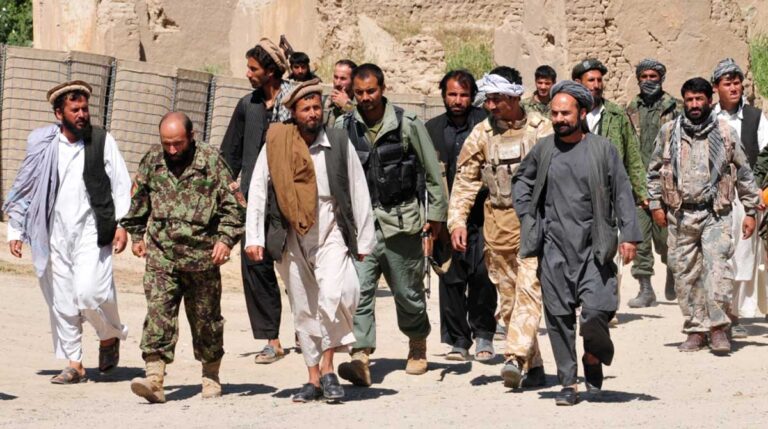Pakistan’s Support for Taliban Regime: A Recipe for Disaster
Politicians often prioritize their country’s long-term interests over maintaining permanent alliances with specific countries or groups. In the case of Pakistan’s relationship with the Taliban, recent terror attacks within the country suggest that its leaders may have miscalculated the potential consequences of their support for the group. The government and security institutions in Pakistan may have failed to fully anticipate the negative impact of their direct or indirect backing of the Taliban, leading to increased violence and instability within Pakistan itself. Pakistan has always been very unclear with its approach towards Afghanistan as we have witnessed from the 1990s till now. US withdrawal from Afghanistan on August 31, 2021, was an alarming situation for Pakistan as we are the closest neighbors of Afghanistan geopolitically as well as ideologically. It brought a new level of uncertainty and instability to the region. The Taliban’s return to power has the potential to create significant security challenges for Pakistan, as well as economic and humanitarian consequence.If we sneak into the past before the US withdrawal Pakistan’s policy towards Afghanistan was based on three principles mentioned senior journalist Saleem Safi wrote in Jang that Pakistan’s policy on Afghanistan was flawed, based on three assumptions: One, the American presence was the root problem in Afghanistan; two, Ashraf Ghani, Hamid Karzai, and Abdullah were Pakistan’s enemies and the Taliban are friends; and third, there is no connection between the Afghan Taliban and TTP.With this mindset, Pakistan welcomed the Taliban regime.How
ever, the situation has evolved significantly since then. The Taliban’s return to power in Afghanistan has created a new reality. The Taliban’s ideological ties to extremist groups like the Tehrik-i-Taliban Pakistan (TTP) have the potential to fuel increased violence within Pakistan’s borders. The recent increase in TTP attacks within the country includes the Peshawar mosque bombing in 2023, Karachi Police Office (KPO), and the freshest Laki Marwat terror attack.
Moreover, the humanitarian crisis in Afghanistan has created a significant burden for Pakistan, which is already grappling with its own economic and social challenges. With an influx of Afghan refugees crossing the border into Pakistan, there is a strain on the country’s already limited resources and infrastructure. Pakistan’s trembling economy is also likely to be impacted by the instability in Afghanistan, particularly with the closure of trade routes and the disruption of economic activity in the region.
The current situation inPakistan is eerily reminiscent of the 1990s when the country backed the Taliban’s rise to power in Afghanistan. At the time, the government and security institutions in Pakistan believed that the Taliban would be a reliable ally and that their rule in Afghanistan would provide strategic benefits to Pakistan.
However, this approach ultimately backfired, as the Taliban’s extremist ideology and support for groups like the TTP fueled increased violence and instability within Pakistan’s borders. The country suffered from a wave of terror attacks, including the devastating bombing of the Marriott Hotel inIslamabad in 2008, which killed more than 50 people.
Now, with the Taliban back in power in Afghanistan, Pakistan may be making the same mistake once again. The government and security institutions in Pakistan continue to support the Taliban, despite the group’s links to extremist groups like the TTP. This support could once again lead to increased violence and instability within Pakistan’s borders.
The TTP is allied with the Afghan Taliban, but the two groups maintain separate structures. Pakistani officials have previously alleged that armed groups are launching attacks on their country from Afghanistan. The Taliban has denied those accusations. Foreign Minister of Pakistan Bilawal Bhutto stated that: “The concern is that if we and the interim government don’t take these groups seriously and they don’t demonstrate the will and the capacity to take on terrorist groups, then they will conduct terrorist activities in the region first – we are already witnessing an uptick in terrorist activity in Pakistan since the fall of Kabul – but it won’t be long before it reaches somewhere else,” Bhutto said at the Munich SecurityConference. In response The Afghan government pushed back against his statement and said Pakistan should discuss bilateral issues face-to-face instead of “complaining at international conferences”.
It seems that Pakistan has not learned from the mistakes of the past. By adopting the same policies towards Afghanistan as it did in the 1990s, Pakistan may once again be setting itself up for failure. The government and security institutions in Pakistan must take a more cautious and strategic approach towards Afghanistan and the Taliban, and consider the potential long-term costs of their actions. Otherwise, Pakistan may find itself facing anotherwave of terror attacks and economic instability in the years to come.
By highlighting this issue one thing is clear from the independence and as a Nuclear state, Pakistan considers itself as head or Guardian of Muslim Nations all over the world but on the other hand, Foreign policy makers of Pakistan need to understand that first you have to take care of your own, by supporting Taliban Regime again it is considered as a suicide mission of which some glimpses we have seen in recent few months. Afghanistan’s Taliban Regime has no different than the government led by Ashraf Ghani.
There is no easy solution to the complex issues facing Pakistan concerning Afghanistan and the Taliban. However, there are several steps that Pakistan can take to address the current situation in Afghanistan and mitigate the potential risks and challenges posed by the Taliban’s return to power. Some possible solutions include:
Reassessing Pakistan’s support for the Taliban: Pakistan’s leadership should carefully reconsider its support for the Taliban in light of the group’s links to extremist organizations like the TTP. While there may be some strategic value in maintaining ties with the Taliban, particularly given their influence in Afghanistan, Pakistan must also consider the potential long-term costs of its support for the group.
Strengthening border security: Pakistan should take steps to strengthen its border security and prevent the flow of militants and weapons across the border with Afghanistan. This may involve increasing the number of troops deployed along the border, improving surveillance and intelligence-gathering capabilities, and cooperating more closely with Afghan security forces.
Improving economic ties: Pakistan should work to improve its economic ties with Afghanistan and other neighboring countries. This may involve opening up new trade routes and investing in infrastructure projects that could benefit both countries.
In conclusion, the situation in Pakistan is complex and challenging and requires a nuanced and strategic approach from the government and security institutions. While there may be short-term benefits to supporting the Taliban, Pakistan must consider the potential long-term costs of this approach, particularly in light of the group’s ties to extremist groups and the humanitarian crisis in Afghanistan. By reassessing its approach towards Afghanistan.
has been flawed, and its support for the Taliban has the potential to fuel increased violence within Pakistan’s borders. Pakistan must take a more cautious and strategic approach towards Afghanistan and the Taliban and consider the potential long-term costs of its actions. Otherwise, Pakistan may find itself facing another wave of terror attacks and economic instability in the years to come.






